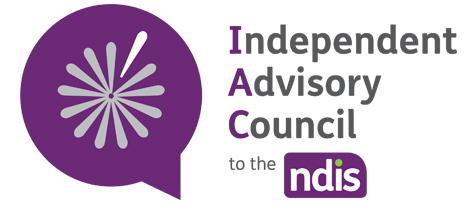Intellectual Disability Reference Group meeting bulletin, 22-23 October 2025
The Independent Advisory Council (IAC) Intellectual Disability Reference Group (Reference Group) met in Brisbane and online on 22-23 October 2025. At the meeting, they discussed:
What they have heard in their communities
An update on supported decision making
An update on the IAC’s advice
Principal Member Leah van Poppel led the meeting.
The Agency announced it was launching the Gavin Burner Excellence in Diversity and Inclusion Award. This award recognises as a past IAC member, Reference Group Co-Chair, and advocate for inclusion. The award will go to an Agency staff member, group or team committed to improving accessibility and inclusion for everyone within the Agency and/or for participants.
What members have heard in their communities
Members raised concerns about limited services in rural areas. Members are hearing participants feel there is not enough specialist help and are concerned about losing their unused funding. Members asked the Agency to encourage more specialist workers in rural areas to stay for longer periods.
The Agency noted it was developing a program for the future of support workers, and how to improve information about workforce pressures.
Members shared community responses to I-CAN, the tool that will be used in the new NDIS supports needs assessment process being introduced next year. The community feel the Agency did not supply enough information about how it works, or how assessors will interpret results. The Agency explained the I-CAN will delivers a broad and strengths-based assessment of a participant's support needs. It also eliminates the need for participants to gather lots of evidence and reports.
Members encouraged the Agency to speed up wait times for home and living funding approvals. Members shared how the Agency does not always arrange plan reviews quickly enough to address participants’ developing issues, which require flexibility. Members recommended 6 month funding periods.
Members also said they want developers to find out what participant needs are, and design housing with these in mind.
Members raised concerns around disability housing providers who insist they also provide the participant supports. Participants feel this denies them choice and control.
Members encouraged the Agency to release Easy Read versions of plans, so participants with intellectual disability understand them easier. The Agency has started a process to make Easy Read plans available in the future.
Members raised concerns from LGBTQISB+ participants about service providers not using their preferred pronouns and chosen names. Members emphasised the importance of providers respecting the community’s choices and identities.
Members asked for greater lead-in times for plan reviews to allow participants to prepare. The community want better communications. The Agency is looking at ways to improve this. The Agency has placed delegates in Agency contact centres, so they can make plan changes on the spot when participants call.
Supported Independent Living project update
Inclusion Australia shared how they are working with the NDIS Quality and Safeguards Commission on the Supported Independent Living (SIL) Project. The Commission is developing new SIL Practice Standards. This will ensure that providers and support workers treat participants fairly, inform them of their rights, and guarantee safe and high-quality services.
IAC Advice
The IAC’s Independent Advisors updated Members on the IAC’s Advice. The ‘Home and Living’ Advice is a priority. The ‘Enhancing Behaviour Support in the NDIS’ Advice has been provided to the Minister. The Agency’s response to the ‘NDIS and Palliative Care’ Advice is due with the Board in early 2026. Members learnt about the approach to the Justice advice which is currently being drafted.
More information on the Reference Group
The Intellectual Disability Reference Group will next meet in March 2026. Find out more about IAC and Reference Group meetings and bulletins at the IAC website.
Information in Easy Read
You can also read this bulletin in Easy Read:
